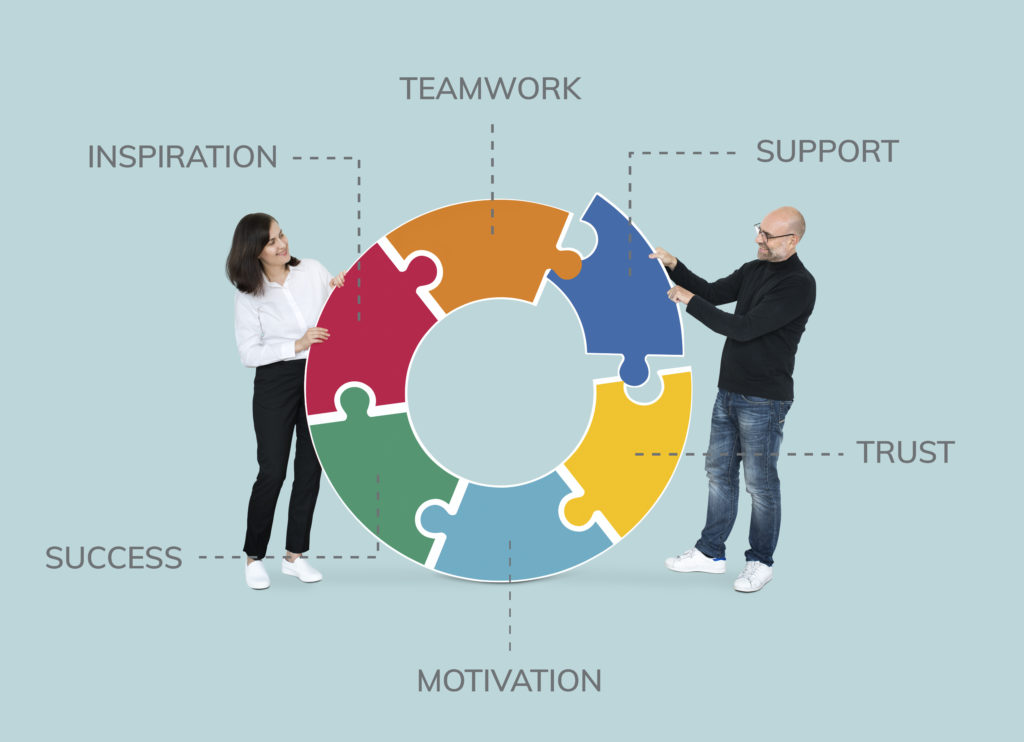
Summary
If you’ve ever had a job, you’ve had to collaborate with other people. It’s only a matter of time before you encounter a difficult or unpleasant personality. This is a common challenge in the workplace.
When we come across personalities that don’t sync with our own, how do we handle the situation? This requires exercising crucial soft skills, especially when these individuals are stakeholders in our projects and their collaboration is essential for success and forward momentum.
Stay Calm and Remain Collaborative
If you’re someone who is short-tempered and lacks patience, this will be a difficult—but not impossible—challenge. Coming across as collaborative and maintaining your patience will play a big role in diffusing frustrations.
-
Don’t react: This is easier said than done and may require practice. Take a deep breath, smile, and be polite.
- Don’t take it personally: It’s understandable that it may be hard to stay cool and collected when a colleague ridicules your initiatives. Empathizing goes a long way. Remember: there is a reason why people are reacting this way. They could have legitimate frustrations with the project that need to be addressed. Once we discover the valid reasons, we will be in a better position to solve the problem.
Accept Their Authority
Pick your battles. While there may be times to disagree with stakeholders, those are few and far between. Acknowledge the organizational hierarchy and give in to small requests. Your stakeholders are in a position of authority. Conceding to small things now not only spares you a headache but also works towards building trust. These small efforts can lead to less difficult interactions down the road.
-
Ask for advice and listen: Stakeholders in positions of authority often have egos. They want to feel like their ideas, knowledge, and experience matter. They may also legitimately feel like they aren’t being heard. Listen and be open to their ideas. Ask for their advice. This is a psychological technique but also a practical one, especially if you’re a project manager.
Communication
Keeping people abreast of key information in real-time is important. But not everyone has the same communication style. While some people love essay-long emails, others prefer phone texts or face-to-face conversations. Discover what communication style your various stakeholders prefer and tailor your communication plan accordingly.
-
Don’t be afraid to be assertive: Sometimes there will be valid reasons for conflict that you can’t ignore. For instance, I had a situation where a colleague was not following instructions on how to create a report, leading to questions about my team’s data integrity. I had to insist that the calculations be done a certain way using a specific data set. I had to be assertive, but politely.
When your job is to drive towards the successful completion of a project with a certain standard of quality, you have a responsibility to address the issues. But be tactful. No one likes being told they are wrong. Instead, focus on the project and what it needs.
What’s Their Motivation?
A great piece of advice from my former supervisor: find out what motivates them. During one of our walk-and-talks years ago, he asked me that very question. Is it money? Is it more time with leadership? For me, the answer was seeing the business grow faster and serve more clients, which I felt could be best accomplished by improving operational efficiency.
What motivates your stakeholders? They might be difficult because they have budgets to stick to or a board of directors to answer to. Or maybe they have doubts about the success of the project. Also, we’re all human, and sometimes there’s just a lot going on in their personal lives.
Discovering what motivates your stakeholders may take time, but doing so teaches you how to anticipate resistance and adjust your response accordingly.
Keep Moving Forward
Listening to your stakeholders and ensuring they feel valued, heard, and appreciated builds trust and support. Effective communication ensures everyone is on the same page and leads to a more successful outcome. Don’t take it personally. When all else fails, take a deep breath, smile, and respond with empathy. Sometimes this requires swallowing our pride several times a day. Finally, there’s no one-size-fits-all answer. Managing different personalities, and managing in general, is a process.